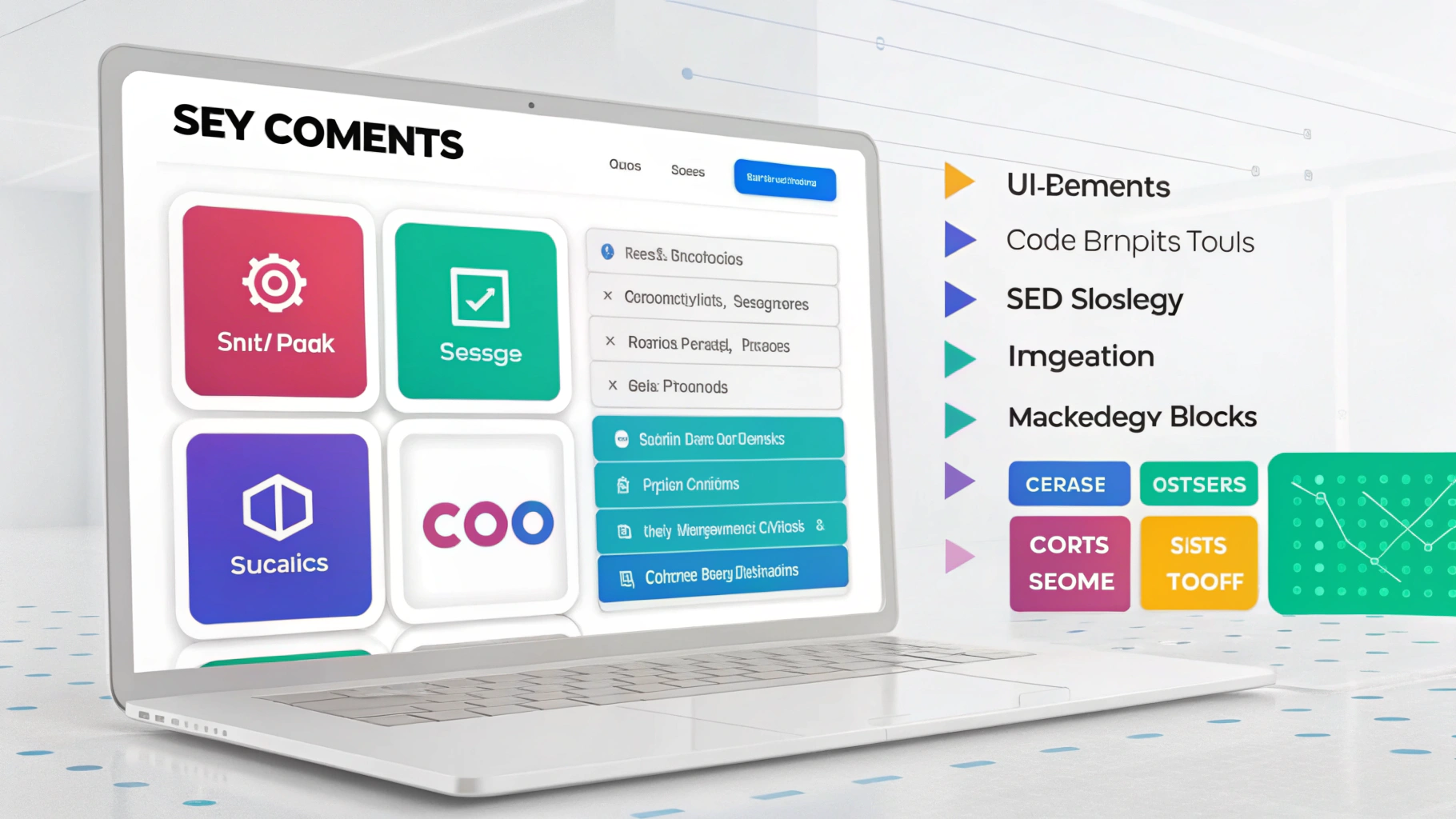Unlock Top Google Rankings: The Small Business Secret
Ever wondered why some small businesses consistently appear on Google’s first page while others languish in digital obscurity? The data is compelling: 75% of users never scroll past the first page of search results, yet only 5.7% of small businesses implement a comprehensive Website Ranking strategy. This disconnect represents both a challenge and an opportunity for small business owners seeking to maximize their online visibility.
In today’s digital marketplace, your online presence directly impacts your bottom line. Whether you’re a local service provider or an e-commerce store, understanding how to optimize your website for search engines isn’t just technical jargon—it’s a fundamental business strategy that determines whether potential customers find you or your competitors.
Why It Matters

The statistics paint a clear picture: businesses that rank in the top three positions for their target keywords capture 54.4% of all clicks. Meanwhile, approximately 97% of consumers research products and services online before making purchasing decisions. For small businesses, effective SEO Strategy, Google Ranking isn’t just about vanity metrics—it directly translates to revenue.
A recent study by BrightLocal found that 88% of consumers trust online reviews as much as personal recommendations. This means your digital visibility doesn’t just drive traffic; it establishes credibility. When your business appears prominently in search results, you’re not just gaining clicks—you’re building trust with potential customers who perceive top-ranked businesses as industry leaders.
Core Concepts
At its essence, Website Ranking revolves around three fundamental pillars: technical optimization, content relevance, and authority building.
Technical optimization ensures search engines can effectively crawl and index your site. Think of it as laying the foundation of a house—without proper structure, even the most beautiful design won’t stand. This includes mobile responsiveness, page speed, secure connections (HTTPS), and clean URL structures.
Content relevance focuses on creating high-quality, useful information that addresses searcher intent. If technical optimization is your foundation, content is the house itself—the visible and valuable asset that attracts visitors. Search engines have evolved significantly, using advanced algorithms to understand context, semantics, and user satisfaction.
Authority building is about establishing your website as a trusted source through backlinks, citations, and brand mentions. Consider this the neighborhood reputation of your digital house—the more respected entities that vouch for you, the more valuable search engines consider your property.
Strategy Implementation Guide
Step 1: Conduct Comprehensive Keyword Research
Begin by identifying the terms and phrases your ideal customers are searching for. Use tools like Google Keyword Planner, SEMrush, or Ahrefs to discover high-value keywords with reasonable competition levels. For small businesses, long-tail keywords (more specific, longer phrases) often provide the best opportunity for ranking quickly.
Focus on search intent by categorizing keywords into:
- Informational queries (users seeking information)
- Navigational queries (users looking for a specific site)
- Transactional queries (users ready to make a purchase)
- Commercial investigation (users researching before buying)
Step 2: Optimize Your Technical Foundation

Perform a technical audit to identify any issues hampering your site performance. Ensure your website:
- Loads in under 3 seconds (Google’s PageSpeed Insights can help)
- Uses responsive design for mobile devices
- Implements proper schema markup for rich snippets
- Creates an XML sitemap for better indexing
- Sets up proper canonical tags to prevent duplicate content issues
Step 3: Develop Strategic Content
Create content that serves both search engines and users. Each page should target a primary keyword and several related terms. Develop a content calendar that addresses different stages of the buyer’s journey with:
- Educational blog posts and guides
- Product or service pages with detailed information
- Case studies demonstrating results
- FAQ sections addressing common customer questions
Remember that content quality trumps quantity—a single comprehensive guide will outperform multiple thin articles on the same topic.
Step 4: Build Authority Through Strategic Relationships
Develop a link-building strategy focused on quality rather than quantity. This includes:
- Creating share-worthy content that naturally attracts links
- Guest posting on industry-related websites
- Getting listed in relevant business directories
- Engaging with local business organizations
- Partnering with complementary businesses for cross-promotion
Benefits
Implementing a robust Website Ranking strategy delivers tangible results beyond just visibility:
- Increased qualified traffic: Higher rankings mean more visitors specifically looking for your products or services
- Enhanced brand credibility: Top search positions establish your business as a trustworthy authority
- Better ROI than paid advertising: While SEO requires upfront investment, it delivers sustainable long-term returns
- Competitive advantage: Many small businesses neglect SEO, creating an opportunity for those who prioritize it
- Improved user experience: SEO best practices align with providing better customer experiences
Case Study
Consider Valley Landscaping, a local landscaping business that implemented a targeted SEO Strategy, Google Ranking approach. By optimizing for local search terms like “landscaping services [city name]” and creating in-depth guides on lawn care, garden design, and seasonal maintenance, they achieved:
- 187% increase in organic traffic over 6 months
- 43% increase in qualified leads
- Top 3 rankings for 27 high-value local keywords
- 52% reduction in cost per acquisition compared to their previous paid advertising
The key to their success wasn’t an enormous budget but rather consistent application of SEO fundamentals tailored to their specific market and customer needs.
Tools & Resources
These tools can help streamline your Website Ranking efforts:
- Google Search Console: Free insights into how Google sees your site
- Google Analytics: Track traffic and user behavior
- Ahrefs or SEMrush: Comprehensive SEO research and monitoring
- Screaming Frog: Technical SEO audit tool
- Yoast SEO: WordPress plugin for on-page optimization
- Ubersuggest: Budget-friendly keyword research tool
- Moz Local: Local SEO citation management
Common Mistakes to Avoid
- Keyword stuffing: Overusing keywords makes content unreadable and can trigger penalties
- Ignoring mobile optimization: With Google’s mobile-first indexing, mobile performance is paramount
- Neglecting local SEO: Small businesses often miss opportunities with Google My Business and local citations
- Prioritizing quantity over quality: Publishing frequent low-quality content versus fewer high-value pieces
- Setting unrealistic timeframes: SEO is a long-term strategy that typically takes 3-6 months to show significant results
Future Trends
The Website Ranking landscape continues to evolve. Watch for:
- Voice search optimization: By 2025, an estimated 50% of all searches will be voice-based
- AI-driven content personalization: Search engines increasingly value user-specific relevance
- Core Web Vitals impact: Google’s page experience signals will gain more ranking weight
- Video content dominance: Video results appearing more frequently in search results
- E-A-T factors: Expertise, Authoritativeness, and Trustworthiness becoming increasingly important ranking signals
Conclusion
Effective Website Ranking isn’t about gaming the system—it’s about understanding what your customers need and delivering it in a way that search engines can recognize. By following the strategies outlined in this guide, small businesses can achieve substantial growth without massive marketing budgets.
Remember that SEO is both an art and a science, requiring continuous learning and adaptation. Start with fundamentals, measure your results, and refine your approach based on data-driven insights.
Ready to transform your online visibility? Begin with a simple SEO audit to identify your biggest opportunities for improvement, then implement changes methodically, focusing on high-impact areas first.
FAQs
How long does it take to see results from SEO efforts?
Most businesses begin seeing measurable improvements within 3-6 months, with more significant results appearing after 6-12 months of consistent effort.
Is SEO worth it for a very small local business?
Absolutely. Local businesses often see the fastest returns on SEO investment through Google My Business optimization and local search strategies.
How much should a small business invest in SEO?
Effective SEO can be implemented on various budgets. Focus first on fundamentals like technical optimization and quality content creation, then expand your efforts as you see returns.
Should I hire an SEO agency or do it myself?
This depends on your time, technical comfort, and resources. Many small businesses benefit from learning basic SEO principles themselves while outsourcing more technical aspects to specialists.
How can I tell if my SEO strategy is working?
Track key metrics including organic traffic growth, keyword rankings, conversion rates from organic traffic, and local visibility. Google Analytics and Search Console provide most of these metrics for free.

